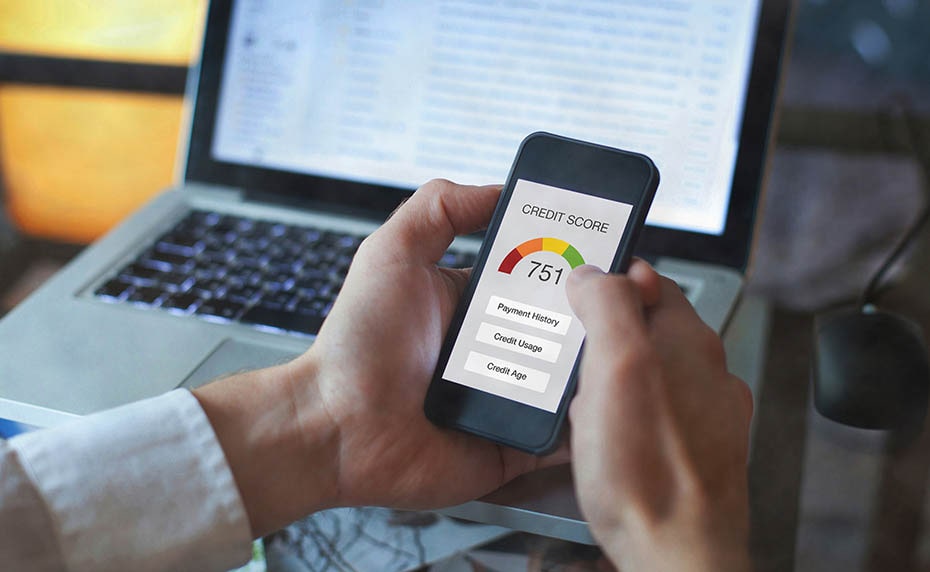Did Your Credit Score Drop? These Common Mistakes Might Be Why…

Why Did My Credit Score Drop?
This article was written by Jean Chatzky and originally published by SavvyMoney on June 15, 2020. It is republished with permission.
A guide to why your score may have fallen—and how to boost it back up again.
Checking your credit score is fairly an easy way to tell if you’re making smart financial moves with your credit cards and loans. It’s a representation of how well you’re paying your bills, keeping your overall debt under control and a few other signs of personal responsibility. But even if you feel like you’re doing everything right, you might be making some mistakes that could cause a drop in your score since the last time you checked. Here’s a look at what they are and how to get back on the right track.
The Problem: Missed Payments.
Making payments on time accounts for 40% of your credit score. Since it carries so much weight, a missed payment—or worse, a history of missed payments—will likely have a significant negative impact on your score. Even though it may not plummet the first time you pay late, your score will definitely drop should it become a habit.
The Solution: Get Ahead Of The Problem.
In the best of all possible worlds, you pay your credit card bills on time every time. But that isn’t always possible—particularly if you’ve undergone a layoff or furlough. If you know you will not be able to pay on time, call your creditor before the due date to see if they would be willing to work out an arrangement, like a pay deferment, forbearance, or a payment plan, due to your special circumstances.
The Problem: Using Too Much Credit.
Your debt utilization ratio—or how much credit you’re using versus the amount of credit you have available to you—is another key factor in determining your credit score. It’s best to use only 10% to 30% of your available credit on each card individually and on all of your cards combined. Using any more will cause your score to drop.
The Solution: Make A Plan To Repay Some Debt.
Create a payment schedule for yourself that will help you—over time—use less and less of your credit until you get into that 10% to 30% utilization range. We also suggest considering opening another credit card. This is only a good move if a) your credit is good enough to qualify and b) you can handle the additional credit without overspending. But the end result of doing so is that the amount of credit available to you will go up, and if your spending stays the same, the ratio, in turn, will go down.
The Problem: Too Many or Too Few Lines of Credit.
Closing credit cards will ding your credit score. Opening too many lines of credit will also adversely affect it. Yes, it’s a frustrating conundrum. What you’re looking for is the sweet spot—enough to keep your aforementioned utilization ratio in the right place without having to continually open and close cards to maneuver it.
The Solution: Manage Your Credit Carefully.
Before you look to take out a loan or open a new card, assess your credit situation: Will you be looking to apply for more credit in the near future? If so, hold off on applying for another card now. And if you have a card you don’t want anymore, as long as it doesn’t have an annual fee don’t close it. Just take it out of your wallet and don’t use it.
The Problem: COVID-19 Has Cut Your Credit.
Because of the pandemic, creditors might take your lines of credit into their own hands. Lenders have been lowering credit limits or even closing out credit cards that haven’t been used in a long time. Because finances are so uncertain, they want to protect their businesses, too, and rid themselves of any risk their customers may pose, explains Jeff Richardson, spokesperson for VantageScore. Their actions could lower your score.
The Solution: Start Using Dormant Cards.
If you’re trying to avoid having a card closed by the issuer, be sure to use it every once in a while, even if it’s not a card you typically use, says Richardson. (The cards that you want to protect most are those with the biggest limits and the ones you’ve had the longest.) The easiest way to do this is to find one bill that stays the same each month, put it on the card, then pay it automatically. And if your credit limit is decreased, call the lender to find out why they did that and if the decision can be reversed.
With Rebecca Cohen
Fidelity Bank does not control the content of or approve any website that is linked through this browser. Search results are not filtered or screened by the bank or any of its agents, representatives or service providers. Users, who search the Internet using their browser, do so at their own risk, and are responsible for the results. The portals and links are provided by an outside source. Fidelity Bank is not responsible for the content.